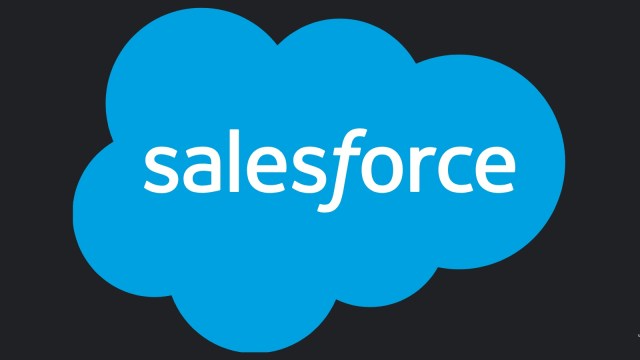99% of Indian C-suite execs ready to take AI leap, Salesforce survey reveals
As top executives of Indian companies look to boost efficiency by embracing AI, concerns mount over potential job cuts.
 Salesforce is looking to develop generative AI into all its product suites (Image: Salesforce)
Salesforce is looking to develop generative AI into all its product suites (Image: Salesforce)A new Salesforce report highlights that Indian CEOs, CTOs, and other senior-level executives are ready to hand off at least one task to AI without human oversight in the next three years, reflecting a bold shift towards AI-driven automation.
Surveying over 300 Indian C-suite executives working at companies with more than 250 employees, the report found that 99 per cent of respondents said that generative AI would play an important role in the success of their businesses by 2027.
With Indian businesses looking to double down on generative AI integration, the B2B multinational is embedding AI across all its product suites.
“From Einstein to launching Slack AI, Tableau, and other marketing solutions, (AI) is accelerating our product development and we want to be able to capitalise on this opportunity where so many leaders across the world are realising the impact of AI on their businesses. We almost feel obligated,” Rahul Sharma, assistant vice president (AVP) of Service Cloud at Slack, told indianexpress.com.
C-suite executives in India also said that AI would have the “biggest positive impact” on departments such as IT, finance, customer service, research and insights, and human resources, as per the survey.
As company executives turn to AI to boost productivity and efficiency, concerns continue to mount over potential job cuts, particularly among white-collar professionals.
How are Indian businesses leveraging AI today?
Over 56 per cent of C-suite executives believe that customer expectations for faster and more personalised experiences are driving AI adoption among Indian businesses, as per the survey. Employee demand for generative AI tools (49 per cent) as well as boosting productivity and efficiency (55 per cent) were also identified as factors driving AI adoption.
The most common tasks that C-suites and their teams currently use generative AI for are:
– Ensuring inclusivity of content and communications (42%)
– Resolving employee IT issues (38%)
– To act as a personal assistant (37%)
– Onboarding and training employees (37%)
– Generating text for customer communications (36%)
– Generating text for internal communications (36%)
– Researching and aggregating large volumes of material (34%)
– Summarising large volumes of content (34%)
– Making personal recommendations (33%)
– Generating image, audio and/or video assets (33%)
– Writing code (32%)
Additionally, over 73 per cent of executives said they regularly use generative AI tools at work.
 Tasks currently used, would consider using, and would have confidence and trust in delegating to AI alone in the next three years. (Image source: Salesforce)
Tasks currently used, would consider using, and would have confidence and trust in delegating to AI alone in the next three years. (Image source: Salesforce)
When asked about Salesforce’s approach to monetising enterprise AI solutions, Sharma said, “We are in a pre-monetisation stage where organisations are still trying to feel out how AI can impact their business. […] Monetisation will take its own time to come. Some of the products we’ve already launched in the market have a certain element of pricing associated with them. It is a competitive price, considering India is a value-conscious market.”
“Salesforce treats India as a very different market: it’s strategic for us, not just from the market standpoint but also because of the huge investments that we’ve made in the region for all of the technology functions that exist here,” he added.
What is holding back AI adoption in India?
The survey respondents outlined the following barriers for AI adoption in India:
– Accessibility and inclusivity issues (38%)
– Concerns about inaccurate outputs (34%)
– Incomplete customer and company data (32%)
– Lack of governance (30%)
To build trust in generative AI tools, nearly all C-suite executives agreed that the AI tool should use accurate data to provide the best output. Data security was also highlighted as a top priority for over 96 per cent of respondents who expressed concern about AI tools putting confidential data at risk.
Commenting on the data security risks posed by AI, Sharma said that companies would need to start thinking about security in a different dimension as compared to earlier businesses. “For a Salesforce customer, our sales cloud, marketing cloud, or service cloud will be grounded on their organisational data. The ability for it to have biases or hallucinations sort of dissipates,” he added.
The Slack executive also dismissed the argument that businesses need to organise their data in order to adopt AI. “Good data has to have some sort of structure. However, work always happens in an unstructured format. A lot of work inside an organisation happens by walking up to a colleague and talking about a problem, having a water cooler chat, calling your manager, or attending an online meeting. Hence, it’s also important to have an LLM powered on all that unstructured data. The results then are going to be far different from what you can just get out of structured data,” Sharma said.
While Sharma didn’t specify a timeline for AI adoption across all Indian businesses, he noted that “it will boil down to what is the risk-taking appetite of an organisation or of the individual leading that organisation.”
“The moment we start finding return on investments coming from some of the businesses who are early adopters of AI, I think we will see very high growth,” he said.







